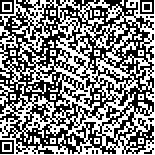| 摘要: |
| 目的 以北京远郊区乡村旅游为研究对象,对乡村旅游效率进行评价,分析影响乡村旅游综合效率的因素及影响程度,为推动北京远郊区乡村旅游可持续发展提供建议。方法 文章基于2006—2019年北京市怀柔、平谷、密云、延庆4个远郊区的统计数据,运用DEA-Malmquist指数模型对北京远郊区乡村旅游效率进行综合评价,并进一步运用Tobit模型分析了北京远郊区乡村旅游综合效率的影响因素。结果 (1)北京远郊区乡村旅游综合效率均值为0.950,处于较高水平,其中平谷区乡村旅游综合效率DEA有效;(2)北京远郊区乡村旅游效率的Malmquist指数变化受技术进步变化影响更大,2006—2019年呈现出先增长、再下降的变化趋势;农林水事务支出、观光园与民俗旅游从业人员、人均GDP、农业观光园个数等影响因素均对北京远郊区乡村旅游综合效率具有正向影响,且影响程度人均GDP、农林水事务支出分列前两位。结论 加快乡村旅游资源整合、持续加大财政支农的投资力度、强化从业人员教育与培训,能够有效地提高北京远郊区乡村旅游效率。 |
| 关键词: 北京远郊区 DEA-Malmquist指数模型 效率评价 乡村旅游 Tobit模型 |
| DOI:10.7621/cjarrp.1005-9121.20230119 |
| 分类号:F327 |
| 基金项目:北京市农林科学院乡村振兴研究中心资助项目“乡村振兴战略下乡村规划体系构建研究”(KJCX201913);中央农办 农业农村部乡村振兴专家咨询委员会软科学课题“十四五培育根植于乡村的优势特色产业研究”(20190206);农业农村部 2020 年度重点课题“我国乡村振兴推进模式与典型范例研究”(0620200059);北京新农村建设研究基地项目“北京乡村特色产业体系及发展路径研究”(PXM2020_014207_000017) |
|
| STUDY ON RURAL TOURISM IN THE OUTER SUBURBAN AREAS OF BEIJING: EFFICIENCY EVALUATION AND ITS INFLUENCING FACTORS |
|
Jiang Peng1, Yang Yadong2, Hao Li1
|
|
1.Beijing Academy of Agricultural and Forestry Sciences, Beijing 100097, China;2.Institute of Agricultural Resources and Regional Planning, Chinese Academy of Agricultural Sciences, Beijing 100081, China
|
| Abstract: |
| This paper takes the rural tourism in the outer suburban areas of Beijing as the research object, evaluates the efficiency of the rural tourism, and analyzes the factors that affect the comprehensive efficiency of the rural tourism, and the purpose of this study is to provide appropriate suggestions for the sustainable development of the rural tourism in the outer suburban districts of Beijing. Based on the statistical data of four outer suburban areas in Beijing, such as Huairou, Pinggu, Miyun, and Yanqing from 2006 to 2019, it applied two different models to figure out the influencing factors on the comprehensive efficiency of rural tourism in the outer suburban areas of Beijing respectively. And the DEA-Malmquist index model was employed to make a comprehensive evaluation of the rural tourism efficiency, while the Tobit model was further used to analyze the factors that affected the comprehensive efficiency of the rural tourism in Beijing's outer suburban districts. The results showed that: (1) The mean value of the comprehensive efficiency of the rural tourism in the outer suburban areas in Beijing was 0.950, which was at a high level, and among the statistical data of these four outer suburban districts in Beijing, the DEA of the comprehensive efficiency of the rural tourism in Pinggu District was effective; (2) The changes in the Malmquist index of the rural tourism efficiency in Beijing's outer suburban districts were more affected by the change of technological advances, showing a trend of growth first and then declined during the period 2006-2019; the influencing factors that the expenditures on agriculture, forestry, and water conservancy, the practitioners in sightseeing parks and folk tourism, the per capita GDP, as well as the number of agritourism sightseeing parks all had a positive impact on the comprehensive efficiency of the rural tourism in the outer suburban areas of Beijing, and in terms of the degree of influence, the per capita GDP and the expenditures on agriculture, forestry, and water conservancy rank the top two respectively. Therefore, it proposes that accelerating the integration of the rural tourism resources, continuously increasing the investment of fiscal support for agriculture, and strengthening the education and the training of practitioners could contribute effective paths on the improvement of the comprehensive efficiency of rural tourism in the outer suburban areas in Beijing. |
| Key words: the outer suburban areas of Beijing DEA-Malmquist index model efficiency evaluation rural tourism Tobit model |

